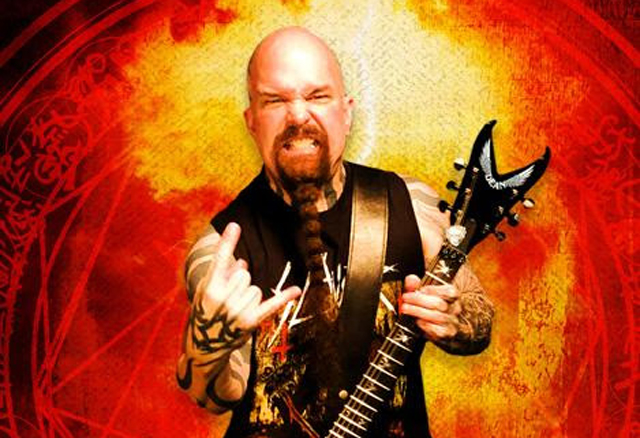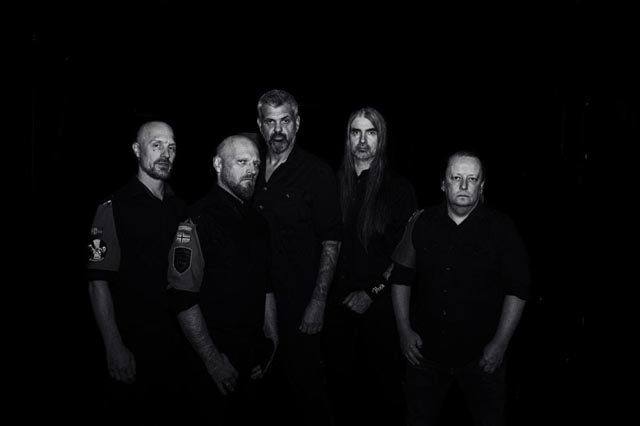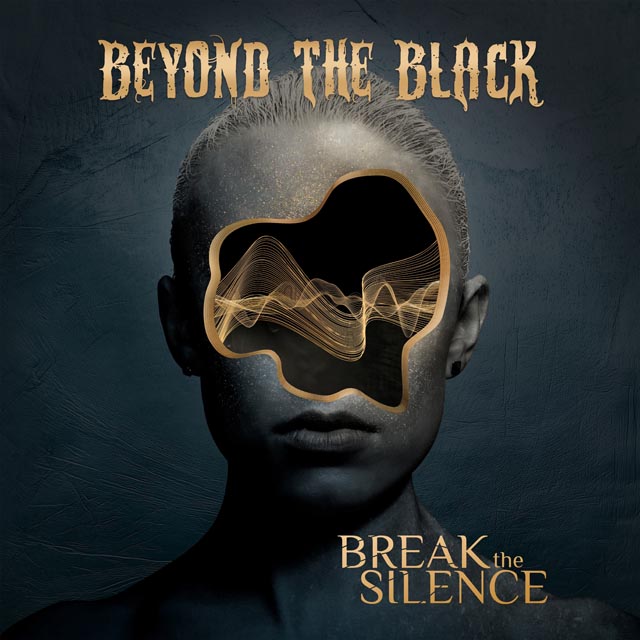 Given the body of work he’s amassed already, not to mention his long, flowing gray beard, it’s hard to imagine that Rick Rubin is only 52 years old. In his 32 years of producing, he cofounded Def Jam, then American Recordings and he produced everything from Slayer’s Reign in Blood to Adele and Johnny Cash. On the eve of his being honored by the Recording Academy Producers and Engineers tonight, Rubin sat with Rolling Stone to talk about 21 of his career-defining moments. Among them was the paring of Slayer’s Kerry King and the Beastie Boys. King soloed on “Fight For Your Right (To Party) and “No Sleep ‘Til Brooklyn,” but there was no mutual respect between the two artists, Rubin remembers. In fact, it was quite the opposite. Here’s Rubin on King playing on “Brooklyn”:
Given the body of work he’s amassed already, not to mention his long, flowing gray beard, it’s hard to imagine that Rick Rubin is only 52 years old. In his 32 years of producing, he cofounded Def Jam, then American Recordings and he produced everything from Slayer’s Reign in Blood to Adele and Johnny Cash. On the eve of his being honored by the Recording Academy Producers and Engineers tonight, Rubin sat with Rolling Stone to talk about 21 of his career-defining moments. Among them was the paring of Slayer’s Kerry King and the Beastie Boys. King soloed on “Fight For Your Right (To Party) and “No Sleep ‘Til Brooklyn,” but there was no mutual respect between the two artists, Rubin remembers. In fact, it was quite the opposite. Here’s Rubin on King playing on “Brooklyn”:
Kerry King from Slayer did the guitar solo. I don’t think he liked the song. I think he just thought it was bizarre. He’s a real, serious metalhead. He really loves metal, and I don’t think he listens to much music outside of metal. At least then he didn’t. I don’t think it spoke to his aesthetic. And honestly, in retrospect, I don’t think he really spoke to the Beasties’ aesthetic. They didn’t really like him either [laughs]. It was kind of mutual.
He also talks about working with Slayer on Reign in Blood, as “Angel of Death” is another song he highlighted, stating that he had to think differently when producing the album. He says that other thrash music recorded at the time sounded like rock records, but this was a new form:
Dave Lombardo is this incredible, unbelievably great drummer. One thing that we did was make the drums louder. The nature of distorted electric guitars is that they sound loud regardless of how loud they are. Whereas drums, because it’s a natural instrument, depending on how loud they are in the mix really changes that feeling of how hard they’re being hit. If you’re in a room with the drums and somebody’s hitting them hard, they’re much louder. So, psychologically, by making the drums louder, it made everything seem louder.
I also did away with reverb. With their super-fast articulation in a big room, the whole thing just turns into a blur. So you don’t get that crystal clarity. So much of what Slayer was about was this precision machinery.
This was clearly a controversial song. Slayer were kind of the first death-metal or thrash band. I don’t know what the right title is. Metallica and they were going on at the same time, but Metallica were so different lyrically than them. Slayer were more blood and guts and Satan. Anyway, this was a song where the record company refused to put out the record. So we had to find a new distributor. It was the first record I did with Geffen Records instead of Columbia Records.
Additionally, he counts Danzig’s “Mother” among his 21 songs. He says he was turned onto Danzig by Metallica’s James Hetflied and Cliff Burton, who told him to listen to Samhain. Upon doing that, he realized that while he liked Danzig’s songwriting, Samhain couldn’t play, which led him to help assemble the lineup for the self-titled Danzig album in 1990 featuring drummer Chuck Biscuits and guitarist John Christ:
Glenn wrote all the songs, including the majority of the parts, other than maybe the guitar solos. Although sometimes he even wrote those. He had a very clear picture of the songwriting. I remember Glenn being really excited about the song “Mother” and telling me that, content-wise, it’s one that he’d been wanting to do for years and just never really found the way to do it. For him, it was a breakthrough in writing. I remember when we were recording, Glenn had laser-beam focus on all the parts. It was so much fun hearing him sing it. It was a trip. That song has got such a great vibe, and he’s such a great singer.
The whole article, in which he also speaks about System of a Down, Metallica and Black Sabbath, and Johnny Cash’s interpretation of Nine Inch Nails’ “Hurt,” is a good read, and you can see it over at Rolling Stone.



![Kerry King Explains The Delay In Slayer’s New Album [Spoiler: Partly Rick Rubin’s Fault] Kerry King Explains The Delay In Slayer’s New Album [Spoiler: Partly Rick Rubin’s Fault]](https://metalinsider.net/wp-content/uploads/2013/02/KerryKing-300x300.jpg)








